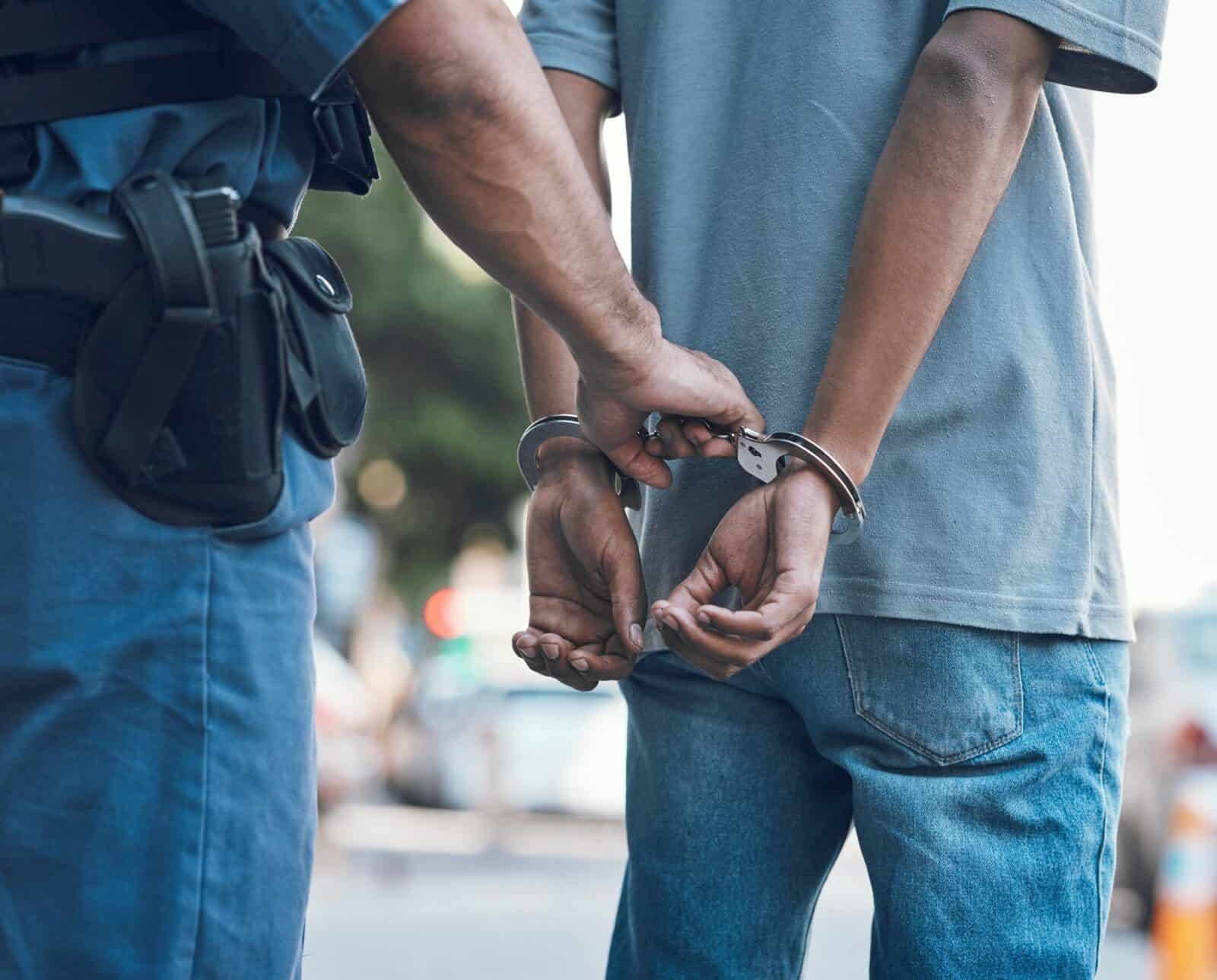When most people think of criminal charges, they imagine dramatic scenes involving handcuffs, police cars, and jail cells. However, Florida's criminal justice system offers an alternative process that many are unaware of: the notice to appear, which serves as a written order to appear in court without requiring physical restraint.
This approach enables law enforcement to bring individuals into the justice system while minimizing the costs, resources, and personal disruption associated with physical detention, making it a crucial option to consider for anyone facing certain types of criminal charges in Florida.

What is a Notice to Appear in Florida?
A notice to appear in Florida is a written order issued by a law enforcement officer that requires an individual to appear in court on a specific date to answer for an alleged criminal offense. Under Florida Statute §901.28, this document serves as a legal alternative to physical arrest for certain offenses. Rather than taking a person into custody, the officer issues this formal document that initiates criminal proceedings.
The notice functions similarly to a traffic citation but applies to specific criminal offenses beyond traffic violations. It contains information about the alleged offense and provides instructions on when and where the person must appear in court to address the charges. This process allows the accused to remain free until their court date without having to post bail.
This mechanism is sometimes referred to as a "written arrest" because it formally initiates criminal proceedings against an individual without physically detaining them. While the person isn't handcuffed or booked into jail, they are still considered to be charged with a criminal offense and must comply with the legal process that follows.
Required Elements of a Valid Notice to Appear
For a notice to appear to be legally binding in Florida, it must contain several specific elements as mandated by state law. A valid notice must include the individual's full name and address, the specific offense charged (including the statute number), the date and place where the alleged offense occurred, and the exact time and location where the person must appear in court.
The document must also clearly state the potential consequences of failing to appear at the scheduled court date, which typically includes the issuance of an arrest warrant. Additionally, the notice requires the signature of the law enforcement officer issuing the document.
Proper identification of the accused is crucial for validity, which is why officers typically require government-issued identification before issuing a notice to appear. The notice will also provide space for the accused to sign, acknowledging receipt of the document.
Signing a Notice to Appear
It's essential to understand the legal implications of signing a notice to appear. Signing the document does not constitute an admission of guilt. Rather, it simply acknowledges receipt of the notice and represents a promise to appear in court on the specified date.
This signature is a contract between the individual and the court system, allowing the person to remain free until their court appearance rather than being taken to jail immediately. For this reason, signing the notice is generally in a person's best interest.
Refusing to sign a notice to appear typically results in the officer proceeding with a physical arrest, as the refusal suggests the person may not voluntarily appear in court as required. By signing, individuals can avoid immediate jail time and the bail process while maintaining their regular life activities until the court date.
Eligible Offenses for a Notice to Appear
In Florida, notices to appear are typically reserved for non-violent, less serious offenses where the accused doesn't present a significant threat to public safety. Most commonly, these notices are issued for first-time, non-violent misdemeanors and certain municipal ordinance violations that don't involve victims of crimes against persons.
Common examples of eligible offenses include petty theft (valued under $100), possession of small amounts of marijuana in jurisdictions where it remains criminalized, disorderly conduct, trespassing, and certain criminal traffic offenses that exceed simple civil infractions. Local retail businesses often request notices to appear rather than arrests for first-time shoplifters when the value of stolen merchandise is minimal.
The rationale behind limiting notices to these types of offenses is that individuals charged with minor crimes are more likely to appear voluntarily for court proceedings and pose minimal risk to public safety if allowed to remain free until their court date. This approach also helps reduce jail overcrowding and conserves law enforcement resources for more serious matters.
Misdemeanor Eligibility
Misdemeanor offenses make up the vast majority of cases where notices to appear are utilized in Florida's criminal justice system. However, not all misdemeanors qualify, and various factors influence eligibility.
First-degree misdemeanors (punishable by up to one year in jail) and second-degree misdemeanors (punishable by up to 60 days in jail) may qualify for a notice to appear if they don't involve violence, victims of crimes against persons, or other aggravating factors. First-time offenders are typically more likely to receive notices than those with prior criminal histories, as they're generally considered lower risk for failing to appear.
Some Florida counties have expanded eligibility guidelines to include a broader range of misdemeanors in efforts to reduce jail populations and minimize the collateral consequences of unnecessary pretrial detention. For example, Miami-Dade County has implemented programs that encourage officers to issue notices for certain drug possession offenses and non-violent misdemeanors, while Broward County has specific protocols that prioritize notices to appear for first-time offenders of ordinance violations and certain petty theft cases under specific dollar thresholds.
Exclusions and Restrictions
Despite the benefits of notices to appear, certain types of offenses and situations are explicitly excluded from eligibility under Florida law and policy, requiring traditional arrest procedures instead.
Domestic violence offenses are universally excluded from notice to appear eligibility in Florida, regardless of severity. This exclusion stems from public safety concerns and state laws requiring custody in these cases. Similarly, driving under the influence (DUI), violent crimes of any kind, and all felony offenses require physical arrest rather than a notice to appear.
Cases involving unidentified individuals or those who appear likely to flee the jurisdiction are also ineligible for notices to appear. If the officer has reason to believe the person won't voluntarily appear in court, perhaps due to a lack of community ties or statements indicating such, a physical arrest becomes necessary.
Law enforcement maintains significant discretion in borderline cases and may consider factors like the suspect's behavior during the interaction, whether victims are present and requesting more serious action, and whether the officer believes the person presents any danger to themselves or others if released on a notice.
Officer Discretion in Issuing Notices to Appear
Police officers in Florida maintain considerable discretion in deciding whether to issue a notice to appear or make a physical arrest, even when dealing with eligible offenses. This discretion allows officers to assess each situation individually and determine the most appropriate course of action based on the specific circumstances and the individuals involved.
Key factors that influence an officer's decision include the suspect's level of cooperation during the interaction, whether they can provide valid identification, and their ties to the local community. Someone who is respectful, has an ID, and can demonstrate local employment and housing is more likely to receive a notice than someone who is combative, cannot be properly identified, or appears to be transient with no local connections.
The suspect's criminal history also plays a crucial role in this decision-making process. A first-time offender is generally more likely to receive a notice to appear than someone with multiple prior arrests or convictions, especially if those prior incidents involved failures to appear in court. Officers may check databases during the interaction to assess the person's history before making their decision.
Different law enforcement agencies throughout Florida have varying policies regarding notices to appear, with some departments encouraging their use more than others. In recent years, many jurisdictions have moved toward greater utilization of notices as part of broader criminal justice reform efforts aimed at reducing unnecessary incarceration, particularly for low-level offenses.
Advantages of a Notice to Appear
Receiving a notice to appear rather than experiencing a physical arrest offers several significant advantages for individuals facing criminal charges. These benefits can be grouped into personal, practical, and social categories.
From a personal perspective, a notice to appear allows the individual to avoid the trauma, embarrassment, and disruption associated with being handcuffed, transported in a police vehicle, and processed at a jail facility. These experiences can be particularly distressing and humiliating, especially for those who have never been involved with the criminal justice system before.
The practical advantages are substantial as well. The person can maintain their normal daily life, including continuing to work, attend school, and fulfill family responsibilities, while their case proceeds through the court system. This continuity can be crucial for financial stability and mental well-being during an already stressful time. They also avoid having to arrange for and post bail, which can be costly and sometimes impossible for those with limited financial resources.
Socially, a notice to appear typically results in less public stigma than an arrest. There's no mugshot taken, which means no photograph that could potentially circulate online or in the media. Family members are spared the stress of trying to locate a loved one in custody or arrange for their release, which can strengthen support systems during the legal process.
What Happens After Receiving a Notice to Appear
After receiving a notice to appear, the individual must appear at the specified court location on the date and time indicated in the document. Typically, this court date is scheduled 2-4 weeks after the notice is issued, giving the person time to consult with an attorney and prepare for the appearance.
This initial court appearance is typically an arraignment, where the judge formally presents the charges, advises the person of their rights, and asks for a plea of guilty, not guilty, or no contest. The entire process has been initiated without the person ever being taken into custody.
When preparing for this court appearance, individuals should gather all relevant documentation, including the notice to appear itself and any evidence that might support their case. It's advisable to arrive at least 30 minutes early to navigate security and locate the correct courtroom. Appropriate business casual attire is recommended to make a good impression on the court.
Although a notice to appear might seem less serious than an arrest, it's important to understand that the underlying criminal charge is just as serious and carries the same potential penalties upon conviction. For this reason, contacting an attorney as soon as possible after receiving a notice is essential. Legal counsel can provide guidance on how to proceed, potentially negotiate with prosecutors before the first court date, and ensure the person's rights are protected throughout the process.
Court Procedures and Expectations
The court process following a notice to appear follows a specific sequence of events that differs somewhat from cases involving traditional arrests, particularly in the early stages.
At the arraignment, the judge will confirm the defendant's identity, ensure they understand the charges against them, and ask for a plea. If the person pleads not guilty, the court will set future dates for pretrial conferences and potentially a trial. For minor offenses, prosecutors may immediately offer a plea agreement or diversion program.
Diversion programs are alternatives to traditional prosecution that allow eligible defendants to complete certain requirements (such as community service, educational courses, or treatment programs) in exchange for having their charges dismissed. Common diversion options for notice to appear cases include misdemeanor intervention programs, drug court, and pretrial intervention programs. These options are particularly valuable for first-time offenders looking to avoid a criminal record.
Those who cannot afford an attorney may apply for a public defender at this stage if the offense carries potential jail time. The judge will also set conditions of release, which are typically minimal for those who appeared voluntarily on a notice to appear, assuming they have no history of failing to appear for court.
While the case was initiated through a less restrictive mechanism, the courtroom procedures and potential consequences remain as serious as any other criminal case. Depending on the charge, conviction could result in jail time, probation, fines, and a permanent criminal record that may affect future employment, housing, and other opportunities.
Consequences of Failing to Appear
Failing to appear in court after receiving a notice to appear triggers a series of escalating legal consequences. The most immediate result is that the judge will issue a bench warrant for the person's arrest. This warrant remains active indefinitely and allows any law enforcement officer to arrest the individual on sight, including during routine encounters such as traffic stops or even when the person contacts police for unrelated matters.
Beyond the warrant, failing to appear constitutes a separate criminal offense under Florida law. If the original charge was a misdemeanor, failing to appear is typically charged as a first-degree misdemeanor, punishable by up to one year in jail and a $1,000 fine. If the original charge was more serious, the failure to appear may be charged as a felony with even more severe penalties.
Once arrested on a failure to appear warrant, the individual typically faces much more restrictive conditions than they would have originally. The court may set a significantly higher bail amount or deny bail altogether based on the demonstrated flight risk. Additionally, the prosecution may become less willing to offer favorable plea agreements or diversion programs once a defendant has shown disregard for court orders.
If a legitimate emergency prevented court attendance, the person should contact an attorney immediately to explain the situation to the court. In some cases, with proper documentation of the emergency (such as medical records), the court may recall the warrant and reschedule the appearance without additional penalties.
How an Attorney Can Help With a Notice to Appear
An experienced criminal defense attorney can provide invaluable assistance to individuals who have received a notice to appear in court. From the moment of engagement, an attorney can thoroughly analyze the circumstances of the case, examining whether proper procedures were followed during the interaction with law enforcement and identifying potential legal defenses based on the specific allegations.
Early intervention by an attorney often yields the best results, as it allows for proactive negotiations with prosecutors before court positions harden. This can lead to reduced charges, entry into pretrial diversion programs that may result in dismissed charges upon completion, or other favorable resolutions that minimize the impact on the client's record and life. For first-time offenders, especially, these early negotiations can sometimes lead to outcomes that preserve future opportunities.
In court, having professional legal representation ensures that defendants don't inadvertently make statements that could harm their case. Attorneys understand courtroom procedures, know what to expect from particular judges and prosecutors, and can navigate the system efficiently while protecting their clients' interests.
They can also file appropriate motions to suppress evidence if rights were violated during the investigation or challenge the legal sufficiency of the charges themselves. Although a notice to appear may seem less serious than a physical arrest, the underlying charges carry identical potential consequences upon conviction.
Speak With a Florida Criminal Defense Attorney Today
If you've received a notice to appear in Florida, don't mistake this document for a minor inconvenience. While you've avoided immediate arrest, the charges you face carry the same potential penalties as if you had been taken into custody. Taking immediate legal action is essential to protect your rights and future.
Whether you're facing a misdemeanor charge or a more serious offense, the experienced criminal defense attorneys at Weinstein Legal Team can provide the guidance and representation you need. Our team has extensive experience handling notice to appear cases throughout Florida and can help navigate your case toward the best possible outcome, potentially including diversion programs, reduced charges, or dismissal.
The criminal defense attorneys at Weinstein Legal Team are available to start your free case review, no matter the time of day. Give us a call at 888.626.1108 to speak with a lawyer now, or click here to start your free case review online.


